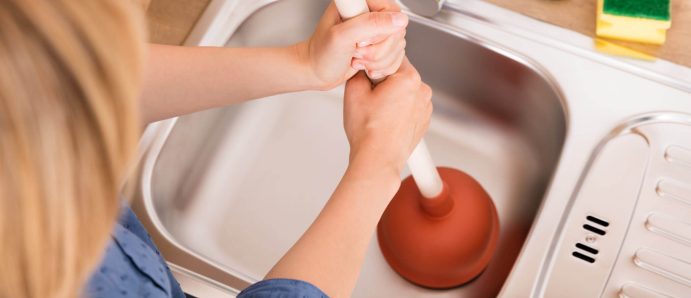Before the repercussions of a blocked drain occur, it’s good to know what causes a blockage so that you can avoid the stress of flooding, foul odours, leaking or worse happening in your home. Below we will discuss the common causes of a drain blockage.
The most common cause of blockages in sewer and storm water drains are tree roots. The roots enter the drain through small cracks and then grow, causing blockages in the drain which need to be removed by a plumber in Melbourne.
A good drain shouldn’t block, sometimes broken drains are the cause. Drains or pipes that are incorrectly installed, with incorrect fittings and or gradient can also be the cause of a blockage.
Foreign objects being put into the drain, like children’s toys, rocks or stones can cause blockages.
Do NOT put the following in the sewerage system:
- plastics
- motor oils, paints or pesticides
- non-biodegradable products
- fats, oils or food scraps
- cotton buds, nappies, condoms, sanitary products and wrappers
- medicines
- wet wipes and facial tissues.
What NOT to flush
Every fortnight, over four tonnes – about the size of an African elephant – of wet wipes are removed from one of Melbourne’s three sewerage networks because they have been wrongly flushed into the system. Wet wipes are a mammoth issue, with over 100 tonnes needing to be removed each year with some causing blockages that can cost up to $1,000 each time they need to be cleared by a blocked drains Melbourne plumber.
While some of these products claim to be flushable, they may not be and customers should be mindful of what is flushed down the toilet. The best option is to put the wet wipes into the bin.
We also suggest you follow these handy hints:
- Use a sink strainer to prevent food scraps and other household waste, from going down the drain. Consider using a compost heap to dispose of food scraps.
- Pour kitchen fats and oils into a container; seal it and throw it in the bin. Alternatively let the grease solidify, wrap it in newspaper and put it in the bin
- Wipe greasy pots and pans with a paper towel before washing.
- Dispose of items such as cotton buds, nappies, condoms, sanitary products and their wrappers in the household rubbish.
- Use less detergent. The average household uses three times more detergent than manufacturers recommend.
- Choose a washing detergent with a low salt content. Concentrated detergents often contain much less salt than conventional varieties.
- Ask your local pharmacy or council for advice on how to dispose of medicines and hazardous chemicals.
What happens if they do go into the system?
These products can cause:
- damaged pipes
- blocked pipes which may impact your property, your neighbour’s property and or the sewerage mains, reticulation system. Remember we all pay through our rates for the blockages and damage done to the entire sewer system caused by these products being flushed down the drains
- harm to the environment.
If your drain is blocked give O’Shea Plumbing of Mount Waverley Vic, Wantirna Vic, Bentleigh Vic or Bundoora Vic a call on 03 9888 2887 for a fast reliable response. We’ll come running!


